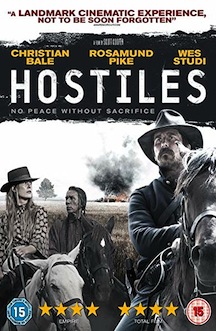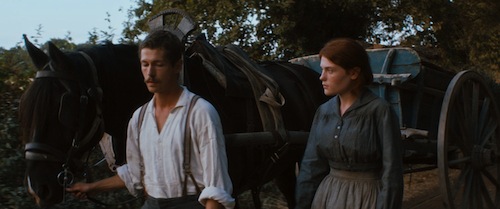Directed by Scott Cooper
Country: USA
Scott Cooper launched his directorial career with a powerful drama, “Crazy Heart”, but since then has gradually lost élan. If his crime thrillers: the fictional “Out of the Furnace” and the biographic “Black Mass”, still carry some sagacity, then he stumbles heavily with “Hostiles”, a sloppy Western based on a promising story by Donald E. Stewart that, cinematically speaking, barely stands on its feet.
Christian Bale spearheads a cast that also includes Rosamund Pike as a grievous widower whose soul burns with a deep rage after having lost her family in an Indian ambush. However, they were incapable to elevate the film above mediocrity.
Protracted, deficiently paced, and lugubrious, “Hostiles” eludes the viewer with limited action and redundant scenes that disclaim any favorable outcome of a well-intentioned cooperation between a merciless US Cavalry Captain (Bale) and a captive Cheyenne Chief (Wes Studi, a Cherokee actor from Oklahoma) and his family. The enemies are the savage Comanches, whose sudden attacks become the only source of excitement.
Unfortunately, and despite the strong appeal to tolerance between races, the insouciant, inept ways of Cooper make us despair throughout a journey into the West that, feeling as tiresome as it is shallow, could never be considered inviting.




























































